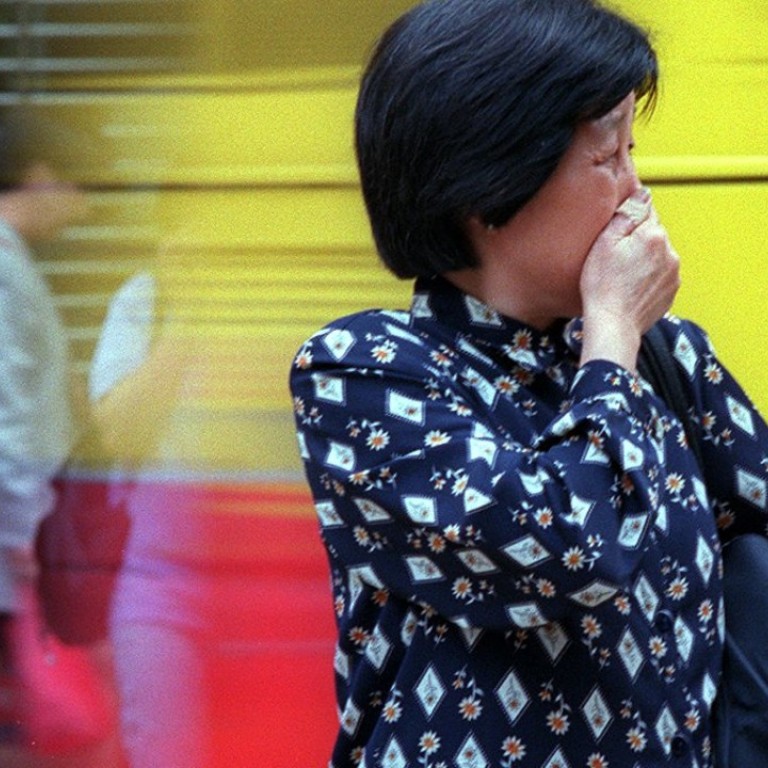
Letters to the Editor, September 19, 2017
When will our officials act on air pollution?
While students in Hong Kong’s universities are busy putting up and tearing down pro-independence posters, there is a crisis that we all need to unite behind, and it involves the mainland as well.
Our city is literally choking on emissions and garbage, and our chief executive, Carrie Lam Cheng Yuet-ngor, for all her focus on livelihood issues, is avoiding taking on the elephant in the room.
Why has the government never had a serious legislative response to tackle increasing pollution? I believe we all know why – Hong Kong is run by a business hegemony which will resist any measure that creates a cost to it for polluting.
Instead, it transfers these costs onto the wellness of the people of Hong Kong, in the form of illness and early death.
This is theft and the state is a thief, as it is stealing this fundamental right – to breathe clean air – from all of us.
The government rating system [Air Quality Health Index] is a joke. On Saturday at many monitoring stations it was a 10+, the highest level. Is the next “policy” a move to 11? Will the government start taking the issue seriously when people start collapsing in the streets and flooding the hospitals, and no one can go out safely any more?
Tackling the issue of pollution requires democratic engagement, where all sectors of society unite on the issue and face down the government to enact legislation. In so doing, we would be creating a government run by and for the people.
Catherine LaJeunesse, Sai Kung
Bags given by fast-food giant very wasteful
I think most of these small bags will be discarded by customers after use. If they are not put into plastic recycling bins, they will surely end up in our landfills which are already close to capacity.
This policy at McDonald’s seems to run counter to efforts by the Hong Kong government to get people to cut back on the number of plastic bags they use. The plastic bag levy encourages shoppers to reuse these bags.
If McDonald’s is not willing to modify its policy, then regular diners can take the initiative. If they often get takeaway meals at McDonald’s, they can save the bag and keep bringing it back with them for their drink, so that it is reused. Or they can simply refuse the bag.
Hilary Lee, Tseung Kwan O
Victory raises hopes of end to Islamic State
I hope it means the country is a step closer to peace and that IS is further weakened.
From its founding in 1999, and since 2014 when it become known globally as it expanded its territory, IS has brought misery wherever it operates.
It brings conflict to the areas under its control and civilians suffer. And it has even spread its influence abroad, inspiring different terrorist attacks in Iraq and in the West.
We have been too dependent on the US in the battle against terrorist groups like IS, so it is good that Washington took the decision to arm and train the Iraqi army, so that its soldiers could take on and beat IS. Their biggest success so far was liberating Mosul in July.
All global citizens should support the efforts being made to fight extremism. Education is the key to persuading young people that these extremist groups are wrong.
Chan Chak-chung, Po Lam
Avoid going overboard on health budget
Many rich mainland families spend a lot on health management (“Country’s rich putting health ahead of wealth, study finds”, September 15).
Maintaining good health is important for many citizens in Asia, especially to Hongkongers and well-off mainlanders.
There is nothing wrong with trying to take care of yourself, but people should not blindly follow the latest health fad or craze and end up wasting a lot of money. We should try to stay healthy, but should always take a sensible approach.
Magdalene Li Hiu-ching, Kwai Chung
All-out caution needed when typhoons loom
Global warming will see us face more extreme weather, such as very strong typhoons. So it is important that we take all necessary precautions when we know one of these storms is approaching the city.
When a high typhoon signal is issued, we must stay indoors and make our flats as secure as possible, to minimise any damage caused by the typhoon.
Kyle Wong, Lai King

